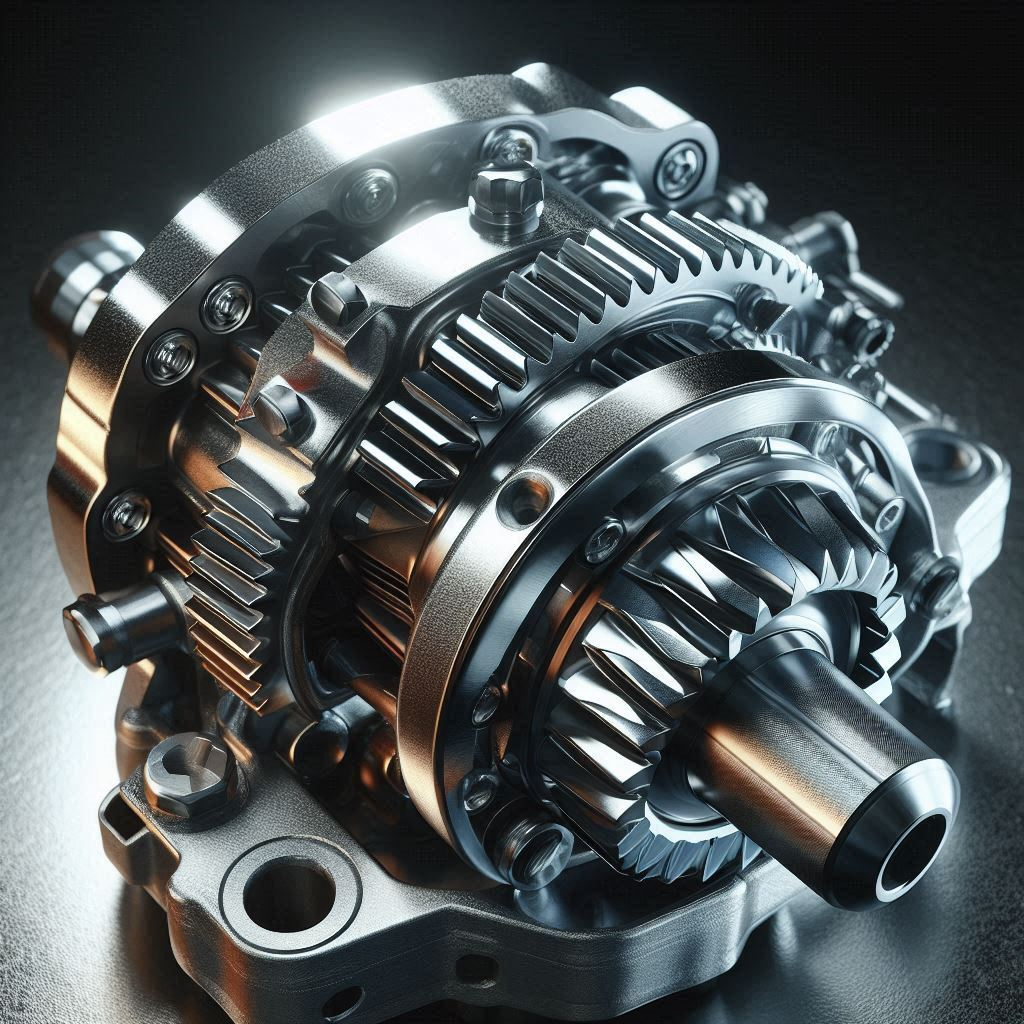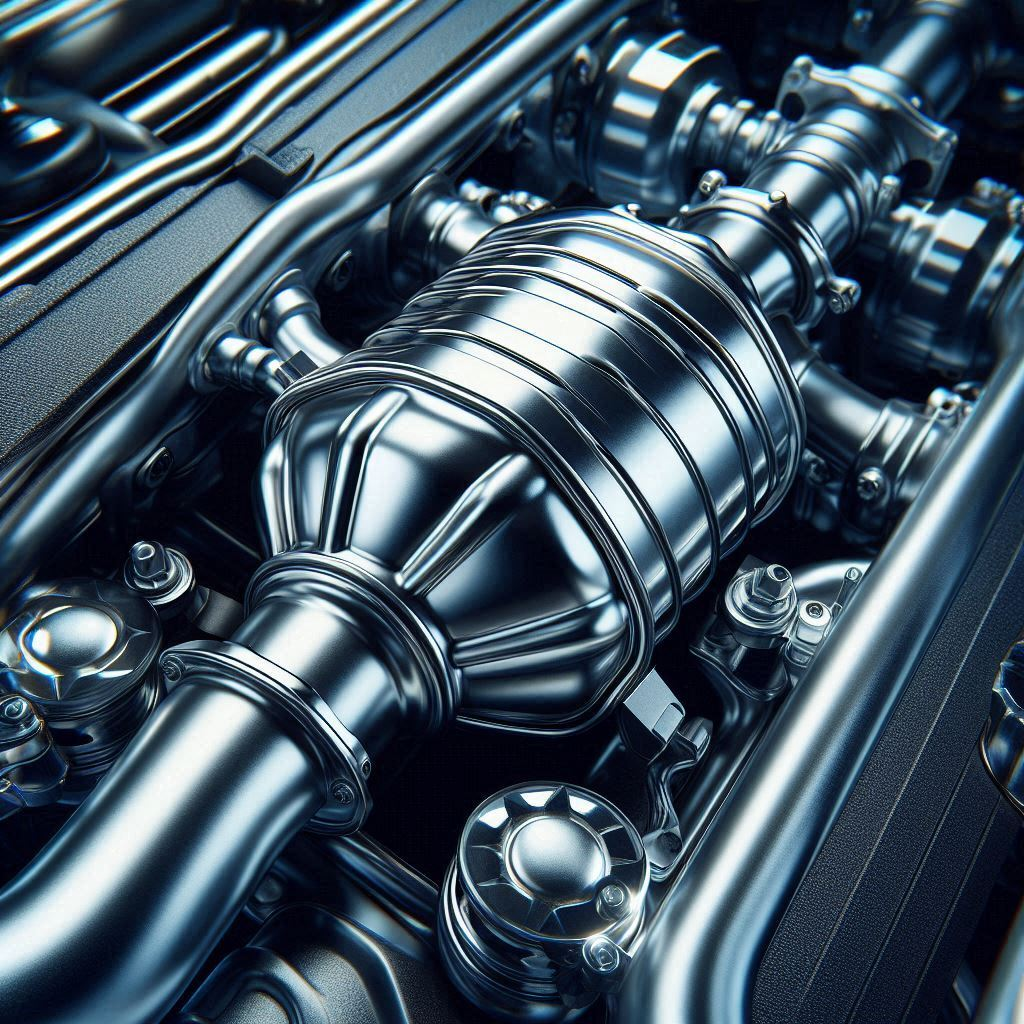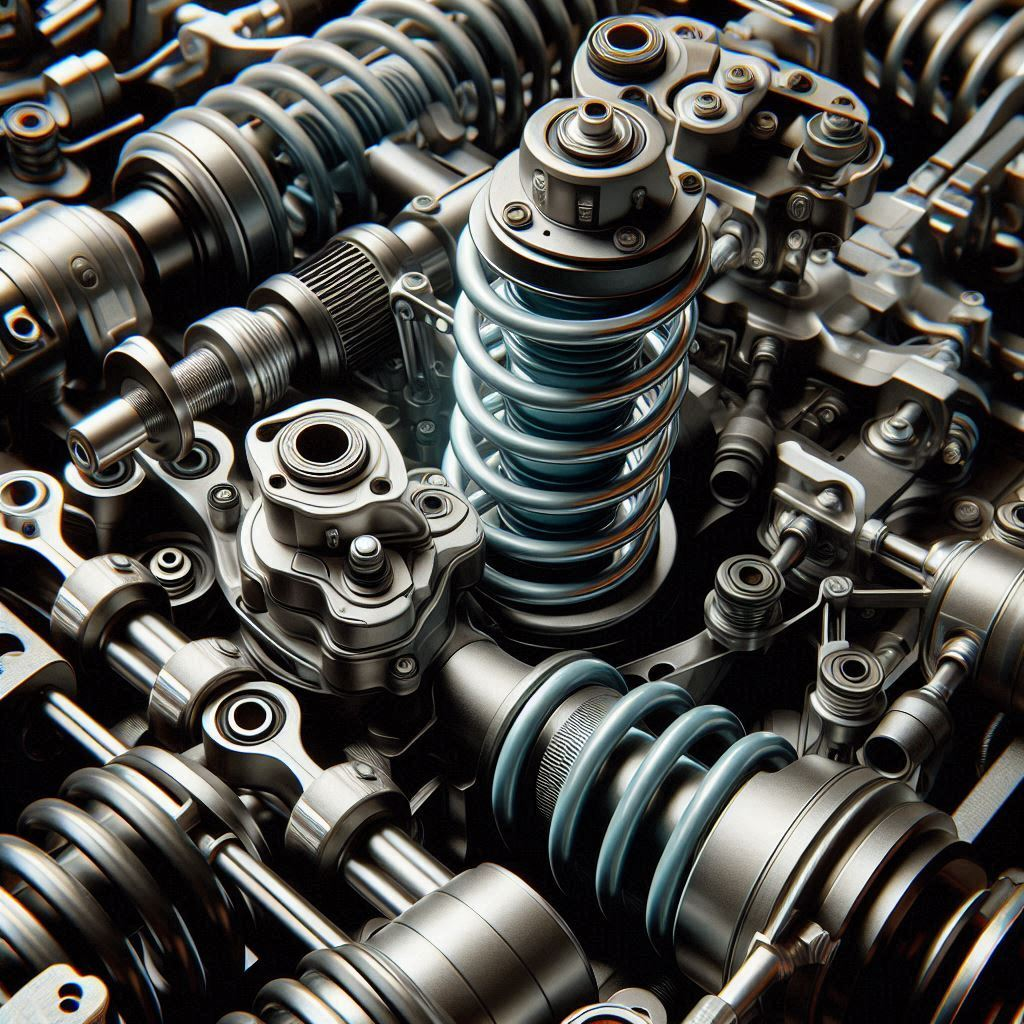By Ricardo Fullwood
•
March 21, 2025
A car's differential is a critical component of its drivetrain, responsible for distributing power from the engine to the wheels while allowing them to rotate at different speeds. This is essential, especially when turning, as the inside wheels travel a shorter distance than the outside wheels. Without a differential, both wheels would be forced to rotate at the same speed, causing tire wear, handling issues, and potential drivetrain damage. The basic function of a differential is to allow each drive wheel to rotate independently, which provides the necessary traction and stability. It typically sits between the drive wheels (front or rear, depending on the vehicle) and contains gears that adjust the power sent to each wheel. This action helps prevent wheel slippage and ensures smoother turns. A differential also plays a significant role in your car's overall performance. A well-maintained differential improves handling, driving comfort, and efficiency, while an improperly functioning differential can lead to poor traction, uneven tire wear, and compromised acceleration. In high-performance or off-road vehicles, specialized differentials, such as limited-slip differentials, can further enhance handling and traction in various driving conditions. Understanding the importance of the differential can help drivers better appreciate its impact on both everyday driving and performance-oriented tasks. The Role of a Differential in Handling and Stability A differential is a crucial component in a car’s drivetrain, playing a significant role in handling and stability, especially when turning. It allows the wheels on the same axle to rotate at different speeds, which is essential when navigating curves or corners. When a vehicle turns, the inside wheel travels a shorter distance than the outside wheel. Without a differential, both wheels would be forced to rotate at the same speed, causing friction, tire wear, and a reduction in handling performance. In terms of handling, the differential ensures smooth and controlled turns, as it permits the outer wheel to rotate faster than the inner wheel. This reduces strain on the tires and suspension, enhancing grip and stability. A well-functioning differential also minimizes the likelihood of skidding or losing traction, especially on slippery surfaces like wet or icy roads. Moreover, the type of differential (open, limited-slip, or locking) impacts a car’s overall stability in various driving conditions. For example, a limited-slip differential provides better torque distribution between wheels, improving traction during acceleration and cornering, while a locking differential can be advantageous for off-road stability. Overall, the differential’s role is integral to ensuring that a car handles efficiently and maintains stability, providing both performance and safety. How the Differential Affects Traction and Grip The differential is a key component in a vehicle's drivetrain that helps manage the distribution of torque between the wheels, particularly during turns. It plays a significant role in maintaining traction and grip, ensuring the car handles efficiently. Torque Distribution: The differential allows the wheels to rotate at different speeds, which is essential during cornering. The inside wheel travels a shorter distance than the outside wheel, and the differential accommodates this difference, ensuring the wheels maintain proper traction. Improved Cornering: By compensating for speed differences between the left and right wheels, the differential helps the car navigate corners more smoothly, reducing the risk of sliding or losing grip. Traction Control: In vehicles with limited-slip differentials (LSD), power is more evenly distributed to the wheels, preventing one wheel from spinning too fast. This is especially beneficial in low-traction conditions (e.g., snow, mud), ensuring better grip. Handling Stability: A well-functioning differential contributes to overall stability. If the differential malfunctions or is poorly calibrated, it can lead to uneven tire wear or loss of traction, making the vehicle harder to control. Impact on Performance: For high-performance cars, advanced differentials (e.g., torque vectoring) offer superior traction, allowing better acceleration and handling in various driving conditions. How a differential can impact engine workload and efficiency A differential plays a critical role in a vehicle’s drivetrain system, particularly when it comes to managing engine workload and efficiency. Its primary function is to allow the wheels on an axle to rotate at different speeds, which is essential when a vehicle turns. Without a differential, the wheels would be forced to rotate at the same speed, causing tire wear and mechanical strain, especially during turns where the inside wheel travels a shorter distance than the outside wheel. By enabling the wheels to rotate at different speeds, the differential reduces the strain on the engine and other drivetrain components. This reduces the overall workload on the engine, preventing unnecessary power loss and heat generation. In turn, the engine can operate more efficiently, maintaining optimal fuel consumption and performance. Without an efficient differential, the engine would be forced to work harder to compensate for the uneven rotation of the wheels. This could lead to increased fuel consumption, overheating, and excessive wear on the drivetrain. In contrast, a properly functioning differential ensures smooth vehicle handling, reduces engine workload, and enhances overall efficiency by allowing the power generated by the engine to be better distributed across the wheels. Importance of maintaining the differential for long-term performance The differential in a vehicle plays a crucial role in ensuring smooth and efficient operation. Proper maintenance of the differential is key to preserving long-term performance. Here are some reasons why it's essential to keep the differential in optimal condition: Ensures Smooth Power Transfer The differential evenly distributes engine power to the wheels. Regular maintenance ensures smooth rotation and power distribution, preventing jerky movements that can damage the vehicle. Prevents Wear and Tear Neglecting differential maintenance can lead to excessive wear on gears and bearings. Over time, this can cause costly repairs or complete failure, impacting vehicle performance and safety. Enhances Fuel Efficiency A well-maintained differential ensures proper wheel synchronization, reducing unnecessary friction. This helps optimize fuel efficiency, leading to cost savings over time. Improves Handling and Stability The differential allows wheels to rotate at different speeds, especially during turns. Proper maintenance ensures the vehicle’s handling remains stable, improving safety, particularly in challenging driving conditions. Reduces Operating Costs By maintaining the differential, you reduce the likelihood of expensive repairs or replacements, ultimately lowering your vehicle’s overall operating costs. Regular checks and fluid replacements are key to maximizing the lifespan and performance of the differential. How to Choose the Best Differential Repair Service in Newark, DE Choosing the best differential repair service in Newark, DE , requires careful consideration to ensure you receive high-quality service at a fair price. Here are some key steps to guide you through the process: Research Local Options: Start by researching repair shops in Newark, DE. Look for ones that specialize in differential repairs and have positive customer reviews. Check Google, Yelp, and the shop's website for customer feedback and ratings. Certifications and Expertise: Ensure the service center employs certified technicians with experience in differential repairs. The best shops will have certifications from recognized organizations, indicating a high level of expertise. Get Recommendations: Ask friends, family, or local online communities for recommendations. Personal referrals can provide valuable insights into the reliability and quality of the repair service. Ask for Estimates: Contact a few shops and request estimates for the differential repair. A reputable shop will provide an upfront estimate based on the problem and the vehicle type. Be cautious of unusually low or high quotes. Warranty and Guarantee: A trustworthy repair shop will offer a warranty on parts and labor, giving you peace of mind that the repairs are backed by a guarantee. Conclusion: In conclusion, a differential plays a crucial role in enhancing a car's overall performance by ensuring optimal power delivery to the wheels, especially when turning or navigating uneven surfaces. By allowing the left and right wheels to rotate at different speeds, a differential reduces tire wear, improves handling, and enhances traction. This is particularly important in vehicles that experience varying levels of resistance on each side, such as in tight turns or on slippery roads. Without a differential, vehicles would struggle with poor handling and excessive strain on the drivetrain. The type of differential—whether an open, limited-slip, or locking differential—can also influence a car's performance, especially in terms of cornering ability, stability, and off-road capabilities. For example, a limited-slip differential provides better torque distribution to both wheels, which is especially beneficial in high-performance or off-road situations. On the other hand, a locking differential offers maximum power to both wheels, ideal for tough, low-traction environments. Ultimately, the differential is an essential component that optimizes a vehicle's handling, stability, and safety, ensuring smoother driving experiences and better control, regardless of road conditions.














